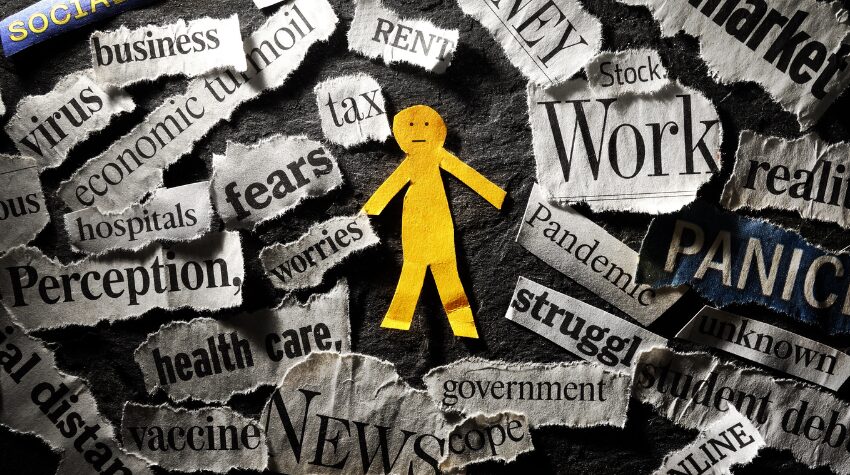
Saving should feel good. Responsible. Reassuring. And above all, consistent.
But what happens when you’re doing everything right—cutting back, budgeting, avoiding impulse purchases—and still feel like you’re not moving forward?
If you’ve recently caught yourself wondering, “Why bother saving if everything just keeps getting more expensive?” or “Am I even saving the right way if my money keeps losing value?”, you’re not alone.
Financial fatigue is real, and in 2025, it’s more common than many people realize.
What Is Financial Fatigue?
It’s that emotional exhaustion that comes from constantly trying to “do the right thing” with your money while the economy keeps pushing back.
It’s financial burnout.
You save consistently, skip little indulgences, track your expenses… but one unexpected car repair, a rent increase, or a spike in your grocery bill can make all that effort feel wasted.
Over time, this cycle creates frustration, discouragement, and even resistance to the idea of planning at all.
We’ve been taught that saving at least 10% of our income is ideal. But what happens when a surprise expense eats into that percentage—or wipes it out entirely?
Often, it’s not about lack of discipline—it’s about lack of breathing room. And still, we end up feeling guilty or inadequate, as if we’re failing at something as “basic” as managing money.
Why Does It Feel Worse in 2025?
There are a few reasons saving feels harder than ever right now:
- Rising Cost of Living:
Even though inflation has cooled compared to previous years, prices remain significantly higher than they were pre-pandemic.
According to Statistics Canada, the annual average inflation rate was 3.9% in 2023 and 2.4% in 2024. As of March 2025, the annual rate stands at 2.3%—within the Bank of Canada’s target range of 1% to 3%.
Still, essential expenses like food, housing, and transportation continue to climb.
Even if your income has increased, it likely hasn’t kept up with the pace of your day-to-day costs—creating a persistent sense of financial stagnation.
- Low Returns on Savings:
Savings accounts and GICs (Guaranteed Investment Certificates) continue to offer relatively low returns compared to the rising cost of living. In practical terms, your saved money gradually loses purchasing power over time.
- Constant Financial Surprises:
A car repair. A hydro bill that’s higher than usual—something that’s been happening more often lately. A medical expense. Life keeps coming, and even small disruptions can throw your entire budget off balance.
Signs of Financial Fatigue
If none of this sounds familiar to you, consider yourself fortunate. But if it does, here are some common signs that you’re experiencing financial fatigue—even if you hadn’t named it until now:
- You avoid checking your budget because it makes you anxious
- You feel guilty spending money, even on essentials
- You’re more irritable than usual when talking about money
- You find yourself thinking “that’s what I work for” to justify unplanned spending
- You’ve stopped saving altogether because “what’s the point?”
- You struggle to make even simple money decisions
Recognizing these patterns is the first step toward regaining control.
How to Recover (Without Burning Yourself Out)
You don’t need to overhaul your entire life. Sometimes, small, sustainable actions are the most powerful. Here are a few ideas:
- Focus on Progress, Not Perfection:
We often fall into the trap of thinking that if we can’t save a lot, it’s not worth saving at all.
Maybe you can’t set aside $500 a month. But if you can consistently save $50, that still counts.
The goal isn’t financial perfection—it’s building a healthy, lasting relationship with money.
Let yourself enjoy the process of saving, and don’t let it become a burden.
Celebrating small wins keeps your motivation alive and rebuilds your confidence over time.
- Redefine the Purpose of Your Savings:
“Saving for the future” can feel vague and uninspiring. Your money needs a clear, personal reason to make sense.
Give each goal a name: a vacation, an emergency cushion, the down payment for your future home—or simply the peace of mind of making it to the end of the month stress-free.
When your savings are tied to something you truly care about, they become easier to stick to and far more rewarding.
- Automate What You Can:
One of the best tools for beating financial fatigue is automation. Set up automatic transfers on payday, even for small amounts.
This removes the need for constant decision-making and protects you from mood swings, temptations, or excuses.
Automation keeps you moving forward without draining your energy. And over time, those small contributions add up—quietly but powerfully.
- Leave Room for Guilt-Free Spending:
Yes, spending is also part of healthy financial living. Allocate a small amount for things that bring you joy—a coffee, a new book, a night out.
When your budget includes room for enjoyment, it’s easier to stick with your goals long-term.
Rigid goals break more easily. Realistic, flexible ones last longer.
- Clean Up Your Digital Environment:
Are you following accounts that make you feel like you’re not doing enough? That promote unrealistic lifestyles or nonstop spending? Time for a cleanup.
Curate your feed with content that encourages balance, mindfulness, and emotional well-being.
Remember: you have the power to program your own algorithm to show you only what truly serves you.
If this resonates with you, we invite you to read this article: The Role of Social Media in Our Spending Habits
Final Thought: Your Effort Still Matters
It’s easy to feel like your efforts don’t count when progress is slow. But every mindful step is a vote for the future you want.
Saving might not feel exciting right now. But neither is brushing your teeth—and we still do it, because we know that over time, it makes a difference.
Financial fatigue is real. But so is your ability to keep going. One step at a time—even one intentional dollar at a time—can bring you closer to a life that feels freer and more secure.








